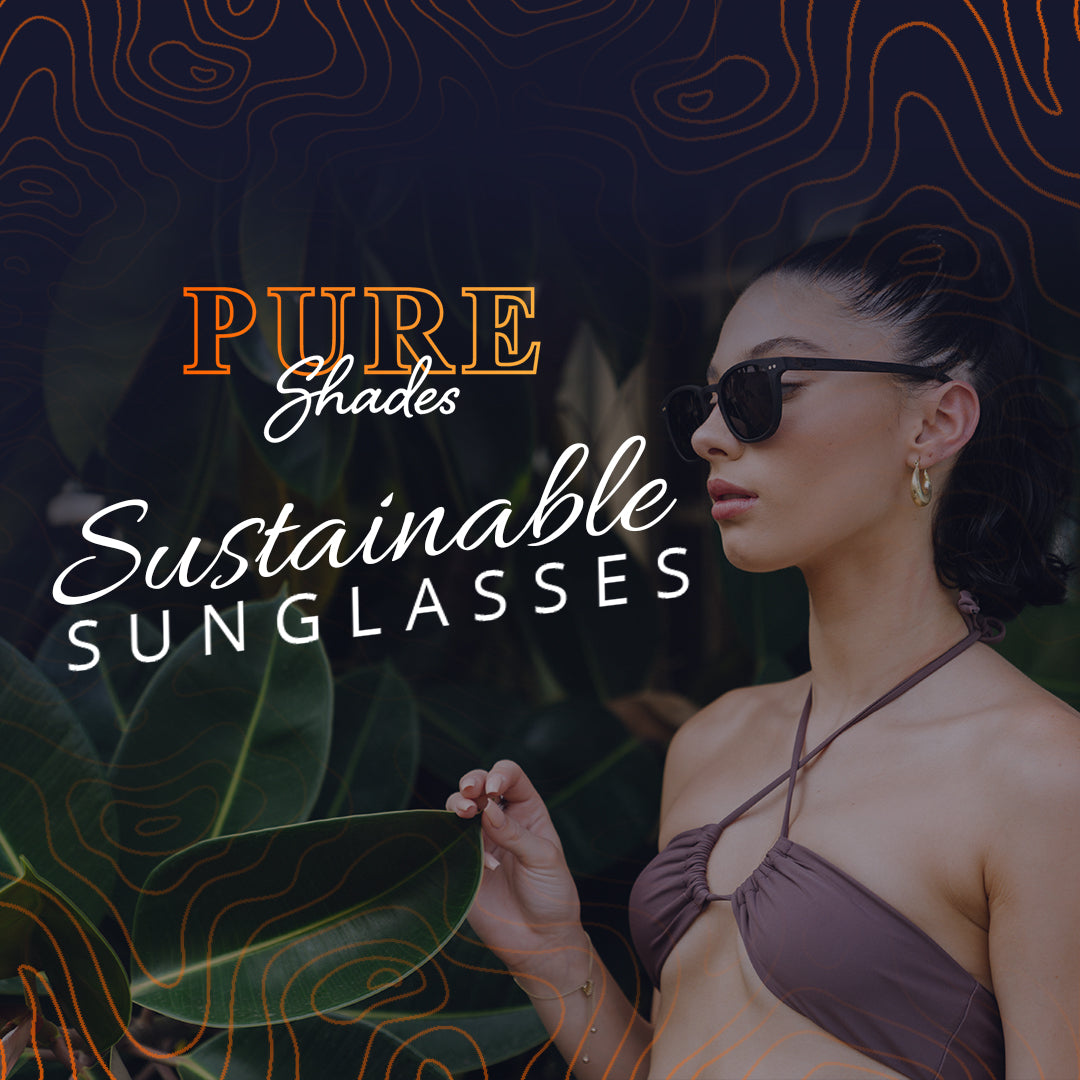
What You Need to Know About Sustainable Sunglasses
Share
So, you want to shop more sustainably?
If you want to be an ethical consumer, there is A LOT of research to do. You’ll need to pick your battles and control what you can to do your part in protecting the Earth.
It can feel overwhelming… there is so much information out there about what is really important and adjusting to a sustainable style is definitely a learning curve.
Learning the basics and starting with small, simple changes is a great place to start. To kick-off your journey into eco-friendly fashion, here’s everything you need to know about sustainable sunglasses.
Why Plastic is Out

Plastic is made to be durable and last forever; even after thousands of years, the material will never fully go away because it’s not biodegradable. This fact has gone viral due to the shocking amount of sea creatures who have died from mistaking plastic litter in the ocean for food.
You also may have heard about the plastic island floating in the Great Pacific that is 1.8 billion pieces of plastic clumped together, stretching out three times the size of France. The sheer amount of plastic that is produced and the length of time it takes to decompose is a huge reason that plastic is unsustainable as a resource.
But What About Recycling?

While difficult, it is possible to own plastic that is made ethically. Most plastics are made from fossil fuels, but some are made from recycled materials or renewable resources like cotton and corn.
The main issue with plastic is the amount of it that’s out there; only 15% of plastic waste makes it to a recycling bin. It’s tricky to claim that all plastic is evil when we look at their impact holistically.
Single use plastics makes cleanliness accessible to huge populations of at-risk communities, (think medical masks during the pandemic!) While this is no excuse to plow through single-use plastics, it’s a good reminder that the focus should be on minimizing waste. Plastic that is recycled or made from natural resources gets the green light.
Our Favorite Plastic Alternative: Ebony Wood

Most sunglasses have frames made with Zyl and Propionate plastic. Long-term contact with this plastic can lead to skin irritation, which is why we’re advocates for wooden frames.
Ebony wood, specifically, is non-toxic and soft on the skin. This luxurious wood has been sought after to make Samurai swords, tombs for ancient Egyptian pharaohs, chess sets, cups for kings in India, delicate instruments, and ornamental luxuries. It’s our favorite kind of wood to work with because of its quality— Ebony will last a long time and is worth the investment. Slow fashion is a topic for another day, but high-quality wood over cheap plastic alternatives is a no-brainer.
Ebony is extremely sought after, and because of this, there is the potential for working with this wood to go too far. Deforestation is a huge problem completely separate from the harm caused by plastics. Ethical use of wood requires planting new trees to replace the ones used for products in order to maintain true sustainability.
Business with an Impact

Sunglasses that are made with wooden frames are inherently more sustainable (and better for you) than their plastic counterparts. But, because of the harm that unsustainable practices have already done to the environment, simply not adding to that damage isn’t enough. Businesses have a responsibility to give back. Partnering with organizations that actively work to heal the Earth is essential in a business being fully ethical and committed to sustainability.
We believe that there are so many worthwhile organizations to partner with that we regularly rotate to make an impact in a variety of projects.
At the end of the day
We can only control our individual actions. One person can’t make everyone care about the climate crisis.
While this can be discouraging, the fashion industry does have an enormous impact on the environment, and this is one way that we can put our money where our values are.
We can make small changes that do make a difference, from buying second-hand clothes to cutting out fast fashion brands and plastic-frame shades.
